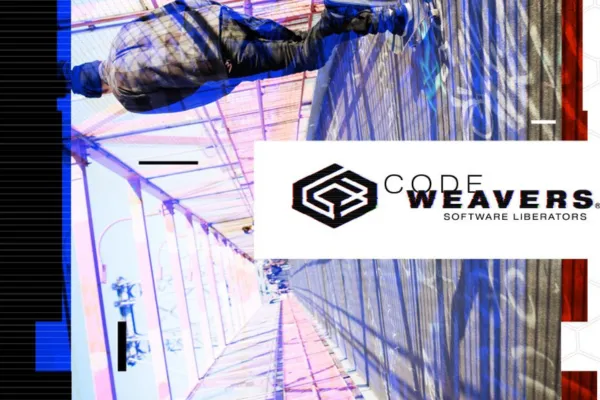
CodeWeavers' Shift to an Employee Ownership Trust Model
Journey to Becoming an Employee Ownership Trust (EOT)
MNCEO’s Executive Director, Kirsten Kennedy, recently talked with Jeremy White, former CEO and President of CodeWeavers, and Derek Razo, co-founder of Common Trust, on the Worker Co. podcast. These leaders are paving the way for a new era of employee ownership!
Vision for CodeWeavers
Jeremy White’s journey with CodeWeavers began in 1996 with a clear vision: Create a company that not only achieves financial success but also offers meaningful and challenging work. Over 27 years, CodeWeavers thrived by using Wine technology to run Windows programs on non-Windows systems, marking significant achievements in the tech world. As he reached a pivotal moment in his career, Jeremy decided to transition his company to an employee ownership trust.
This decision was not made lightly. For Jeremy, it was essential to ensure the long-term well-being of his employees and uphold the company's deeply ingrained open-source culture. This transition ended up being a transformational step for his employees, fostering a sense of ownership and dedication that has sustainably carried the company forward.
Why an Employee Ownership Trust?
Jeremy explored several different ownership models, including stock ownership and cooperatives. However, each had limitations that didn’t align with the unique culture and structure of CodeWeavers. The employee ownership trust model stood out as it allowed the company to continue operating under its existing structure while changing the ownership dynamics to benefit the employees.
The trust has effectively preserved the core values of CodeWeavers and also ensured that the community and staff were central to its future success. Jeremy’s satisfaction with this transition is a testament to the trust model’s ability to maintain corporate integrity and value.
The Common Trust Approach
Derek Razo entered the CodeWeavers story because of his expertise in business transitions and alternative ownership models. Thanks to his background working with business owners, Derek has identified the shortcomings of traditional transitions - where financial goals were often met, but personal and cultural aspirations fell short. This realization led to him founding the Common Trust.
Derek recognizes the critical role of employee ownership in addressing the imminent wave of transitions among Baby Boomer-owned businesses. With Common Trust, he champions the formulation of flexible models that accommodate various business types, ensuring a smooth transition while preserving entrepreneurial legacies.
Impact on Employees and Company Culture
The transition to employee ownership is not without its challenges. Derek and Jeremy admit that finding a model that fits your business requires innovation and adaptability. However, employee ownership allows businesses to maintain their cultural integrity and values, facilitating a seamless transfer of ownership that aligns with long-term business sustainability.
Derek is particularly excited about the prospect of employee ownership as a catalyst for a generational transfer of wealth, empowering workers to be an integral part of local businesses. Common Trust’s role in facilitating these transitions underscores the importance of partnerships that prioritize sustainable business practices.
Jeremy’s transition to an employee ownership trust at CodeWeavers has already shown positive impacts. Employees now enjoy increased profit sharing and a renewed focus on collaboration, breathing new life into the company’s culture. The transition has emphasized the importance of transparency and open communication, reinforcing the employees’ sense of ownership and accountability.
By adhering to the open-source principles intrinsic to its foundation, CodeWeavers continues to flourish, reflecting the benefits of a business model centered on equity and sustainability.
Looking Ahead: A Future of Equitable Economies
Tune into the podcast for the full context of this insightful conversation! You’ll discover that there is unlimited potential for employee ownership models to reshape the economic landscape of Minnesota. While there are very few Employee Owned Trusts (EOTs) in existence in Minnesota today, MNCEO can help businesses explore the benefits of this model. We know that by harnessing the power of collaborative governance, businesses can create a more equitable and enduring economic framework.
